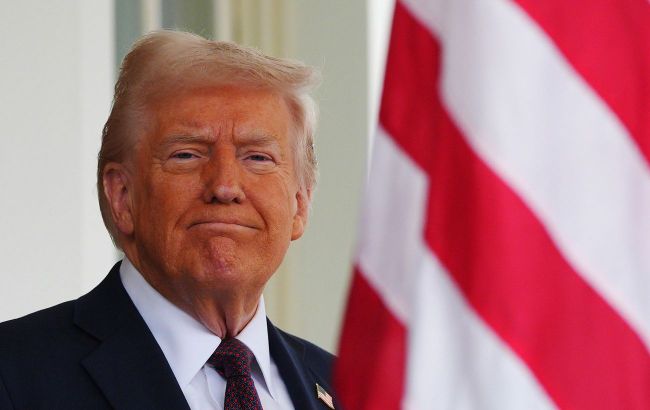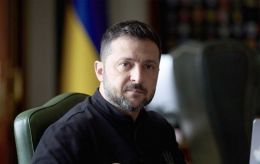US prepares new negotiations with Iran
 Donald Trump, President of the US (photo: Getty Images)
Donald Trump, President of the US (photo: Getty Images)
Negotiations between the US and Iran are approaching a critical point. Washington and Tehran are battling over key terms of the nuclear deal, which could shift the global balance of power, according to the Associated Press (AP).
President Donald Trump believes that Iran, weakened after 18 tumultuous months in the Middle East, is now likely ready to abandon its nuclear program.
"I want Iran to be a wonderful, great, happy country, but they can’t have a nuclear weapon," the president said Friday evening aboard Air Force One.
On Saturday, April 12, negotiations will take place in Oman between Trump's special envoy to the Middle East, Steven Vitkoff, and Iranian Foreign Minister Abbas Araghchi.
Concession and compromise
It is currently unclear whether the delegates will speak directly. Trump stated that the parties would engage in direct negotiations. However, Iranian officials insist that these are indirect negotiations – meaning that the Omani mediator will convey messages between Witkoff's and Araghchi's teams, who will be in separate rooms.
Recently, Trump sent a letter to Iran's Supreme Leader Ali Khamenei, urging direct negotiations. However, Tehran rejected this proposal, though it kept the option for indirect talks open.
Trump calls for direct negotiations and threatens Iran with consequences if the talks fail. Iran, for its part, sends mixed signals about the feasibility of negotiations, claiming that dialogue under the shadow of threats is meaningless.
President Masoud Pezeshkian this week reiterated that Iran does not seek a nuclear bomb and even suggested that Tehran could be open to the prospect of direct American investments in the Islamic Republic if the countries reach an agreement.
This marked a shift from Iran's position after the 2015 nuclear deal, under which Tehran tried to purchase American aircraft but effectively banned US companies from operating in the Iranian market.
National Security Advisor Mike Waltz stated that Trump seeks the complete dismantling of Iran's nuclear program, adding: "That’s enrichment, that is weaponization, and that is its strategic missile program."
However, President Trump himself left more room for negotiations: "The only thing that they can’t have is a nuclear weapon," he told reporters during a meeting with ministers on Wednesday.
Witkoff also made it clear that the administration could agree to a deal that does not require complete nuclear disarmament.
"Where our red line will be, there can’t be weaponization of your nuclear capability," Trump said in an interview with the Wall Street Journal, published on Friday.
The US Department of the Treasury announced this week a new package of sanctions against five companies and one individual, whom US officials say play a key role in Iran's nuclear program.
"All eyes are on Oman by Iranians following this very closely and potentially hoping that this would impact the state of the economy," noted Negar Mortazavi, senior fellow at the Center for International Policy, a think tank in Washington.
However, it remains unclear whether the US will be able to offer Iran a concession significant enough for Tehran to compromise and agree to Trump's demands, which call for stricter guarantees against the creation of nuclear weapons than those outlined in the deal made during the administration of Democratic President Barack Obama.
Dubious libyan scenario
Meanwhile, as reported by AP, Israeli Prime Minister Benjamin Netanyahu, during his meeting with Trump on Monday, April 7, stated that he would welcome a diplomatic agreement similar to the 2003 arrangement with Libya. The Israeli leader is known for his tough stance on Iran and had previously urged Washington to resort to military action.
The agreement with Libya involved the late dictator Moammar Gadhafi renouncing his entire secret nuclear program. Iran, on the other hand, insists that its program, officially recognized by the International Atomic Energy Agency, should continue.
However, Trump noticeably refrains from supporting the Libyan scenario proposed by Netanyahu.
"If it’s narrow, if it’s focused on the nuclear program, if the goal of the US is to prevent a nuclear weapon, then there is a likelihood for success. And it’s under those circumstances that I suspect that you will see talks, perhaps in rather short order, be elevated," noted Trita Parsi, executive vice president of the Quincy Institute for Responsible Statecraft, another Washington-based think tank.
Nuclear standoff between the US and Iran
In 2015, Iran, the USA, Russia, China, France, Britain, and Germany signed an agreement that limited Iran's nuclear program in exchange for the lifting of sanctions. The collective West aimed to prevent Iran from developing nuclear weapons.
During his first term in office from 2017 to 2021, President Donald Trump withdrew from the agreement and reinstated sanctions on Tehran, which led to an escalation in relations between the two countries.
Upon entering his second presidential term this year, Trump decided to negotiate a new nuclear agreement with Iran.
In early March, Trump sent a letter to Iran’s Supreme Leader Ayatollah Ali Khamenei, proposing a new deal on Iran's nuclear program. He threatened massive strikes on the country, including on Iran’s nuclear facilities, if the offer was rejected.
Iran expressed its readiness to negotiate, but only through intermediaries. Meanwhile, amid Washington’s tough threats, Tehran put its missile forces on full combat alert.
For more on the risk of military confrontation between the USA and Iran, read the detailed analysis by RBC-Ukraine.

